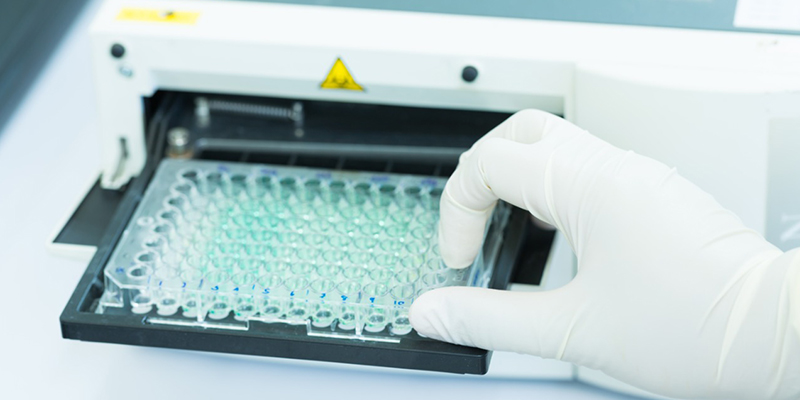What is COVID-19?
COVID-19 is the disease caused by SARS-CoV-2 virus. This virus, upon infection, can cause mild to severe respiratory illness. As of now, the virus has spread throughout the world and has claimed more than 5lakhs lives, with over 10 million infections. Being novel in nature, not much information is available about this virus. The virus is known to spread from one person to other through droplets released during coughing or sneezing from an infected person to another who gets exposed. The infected person shows symptoms of the disease (e.g., fever, coughing, difficulty breathing, etc.) or in the few days upon infection.
What is the utility of IgG antibodies in the diagnosis of COVID-19 on ELISA platform?
COVID-19 IgG test is designed to identify antibodies (also known as immunoglobulins) against the SARS-Cov-2 virus, the causative of COVID-19 disease. Antibodies are the proteins produced by the body’s immune system in response to any infection. Antibodies are specific to a particular pathogen (the infection causing foreign microbe). Antibodies can be found in the liquid part of blood specimens. For COVID-19 diagnosis, the sample is tested for immunoglobulin G (IgG).
Diagnostic tests directed towards IgG antibodies, detects the presence of Immunoglobulin G that develops within 10 days after the symptoms of COVID-19 is experienced. IgG antibodies remain in blood after an infection has passed. The presence of these antibodies indicate that you may have had COVID‑19 in recent past and you may have developed antibodies that may protect you from future infection. However, at this point of time, it is not yet known as how much protection antibodies offer against future SARS-CoV-2 virus.
Trivitron’s COVIDscreen Plus ELISA Kit is a versatile diagnostic kit based on ELISA platform. The kit apart from IgG anitibodies, also detects IgM and IgA antibodies to confirm COVID-19.
Why is your sample referred for tests?
You are advised to go for tests because:
- You might be presenting signs and symptoms (e.g., fever, cough, difficulty breathing) that may point that you have been exposed to SARS-CoV-2 virus.
- Either you live, or have recently travelled to a high-risk zone, where the risk of transmission is very high.
- Any friend, family member or a close contact of yours have been diagnosed to have COVID-19
- You have recovered from COVID-19.
- Additionally, testing of the sample may help find out if you may have antibodies to COVID-19.
What are the risks involved and benefits offered due to the test?
COVID-19 testing through user-friendly diagnostic kits such as COVIDscreen plus pose no threat or risk if handled by an expert or a trained personnel.
The benefits of using COVIDscreen plus diagnostic kits include:
- Based on the results and along with other information, the healthcare practitioner can make informed recommendations about your care.
- The results of this test may help limit the spread of COVID-19 to your family and others in your community and keep a track of the disease.
What does positive results indicate?
At any point of time, if you present positive results of IgG antibodies, it may indicate that you may have been infected with the causative of COVID-19 at some point or in the past. Also, the presence of IgG antibodies indicate previous infection due to any other coronavirus. These other coronaviruses cause common cold.
The presence of IgG antibodies suggests that the infection has occurred weeks to months in the past. It also suggests that the infection might have passed. Also, it may indicate that you may have some immunity to the virus, though you may not.
Based on the results, your health care provider will work with you to determine how best to care for you keeping in mind factors such as medical history, including any previous symptoms, possible exposure to COVID-19 and the location of places you have recently traveled.
What does negative test results imply?
If a negative result is obtained in the COVID-19 IgG test, it would mean that the antibodies to the COVID‑19 virus was not present in the sample. Chances exist, that due to some health conditions, it might be difficult for the body to produce antibodies to an infection.
Also, a negative result is obtained, if you are treated early in the illness and the body hasn’t had time to produce antibodies to infection. This implies that you could still have COVID-19 even though the test results are negative.

